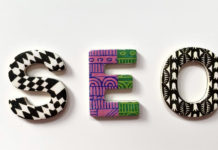Technology is changing rapidly. When I say technology, I am not only talking about gadgets but eyewear too. Do you also wear prescription glasses or contact lenses? For our weak eyesight, we can’t do away with these solutions. What if I told you technology is taking over the world of contact lenses too with Smart Contact Lenses? Yes, you read it right!
The world of Smart Contact lenses is certainly a big leap in the world of technology. Various companies are researching on the concept. The advancement in contact lens technology has helped people to improve their eyesight and correct a wide range of vision problems. In addition to doing this, it will also lead to the invention of life-changing high-tech contact lenses.
Smart contact lenses work by featuring micro versions of tools. This will enable a lens that can not only enhance eyesight but also dramatically change vision in a way that will be life-changing for the wearer.
Let me start by telling you the advantages tear fluids have over other bodily fluids (such as blood, sweat, urine, or saliva).
The transparent, three-layered fluid covering the surface of the eye called tears contains various electrolytes, proteins, lipids, and small molecule metabolites which are in constant exchange with ocular surface epithelial cells, reflecting corneal biochemistry and physiology. This makes tear analysis significant for monitoring ocular health and disease
Research says ‘It’s possible that smart contact lenses could help manage the five most common eye conditions in the future: cataracts, glaucoma, diabetic retinopathy, macular degeneration, and retinal detachment’.
The future is smart to contact lenses are indeed very smart. There are a variety of concepts that are currently being researched. Some references are given below:
- Telescopic contact lenses: These high-tech lenses will allow wearers to have objects appear 2.8 times larger than they actually are. The wearer will need to wink with one eye which will cause their vision to ‘zoom in’ similarly to a camera
- Contact lens camera: Being developed by Google, these lenses have the potential to help the blind across the road and navigate their everyday surroundings. It aims to do this by taking pictures and sending signals to the wearer’s smartphone to warn them of a busy road etc
- Nanowafer contact lenses: Nanowafer contact lenses are super thin lenses that can deliver glaucoma medicine to the eye over long periods of time. These high-tech contact lenses are designed to dissolve slowly, releasing small doses of drugs into the eye as they do. This eliminates the necessity to use eye drops and offers a more effective way of delivering medicine to the eye in steady doses
- Glucose monitoring contact lenses: Someone who has diabetes is aware of how critical is constantly monitor their blood sugar levels. Scientists are currently working on smart contact lenses to eliminate the disruptive process of drawing blood every day. The smart lens will contain a small chip and glucose sensor in order to track glucose levels without drawing blood
- Wound healing contact lenses: Scientists in Australia are currently in the process of developing contact lenses that may have the ability to heal corneal ulcers. The lens works by featuring corneal cells left over from a corneal transplant. These cells will release healing elements that soothe corneal ulcers. Scientists believe that these lenses will be a more efficient way or treating corneal ulcers than treatments currently available. Aside from treating eye diseases, healing wounds and providing a thrill for technology lovers, these high-tech lenses can also enhance military operations and more.
Though, there are various challenges being faced by pharmaceutical and tech giants. Some of them are listed below:
- Thinness: Smart contact lenses need to be thin enough so that they can easily fit the eye. The tiny sensors and microelectronics contained within should be able to supply enough power for them to be able to work
- Reliability: when used for health purposes, smart contact lenses must be able to relay reliable information to help doctors with diagnoses and to improve treatments for patients
Privacy: An important concern from the point of video recording capabilities
To conclude, I would like to say that the world is getting smarter every day.




































